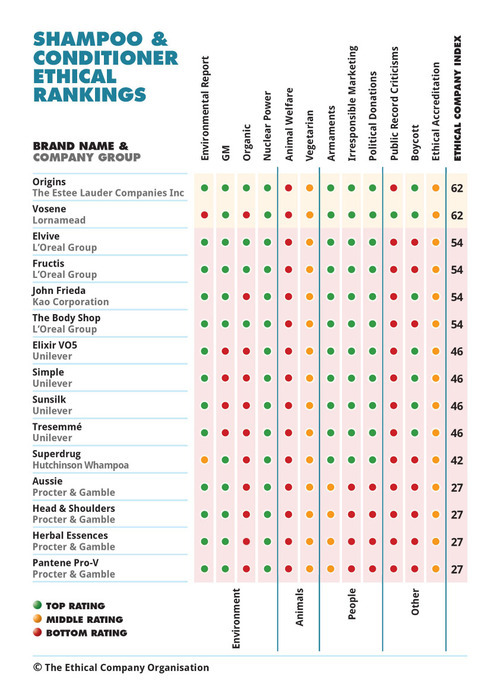I’ve reached the end of the first month of my challenge.
The Body Shop’s hair range has been our product of choice for a few weeks and I have no complaints so far. It’s noticeable that it definitely doesn’t lather up quite so well but that seems like a small price to pay.
Last week I shared the fact that I’d discovered that Body Shop was not particularly highly rated in the ethical world having being bought by L’Oreal back in 2006. One of the main issues is animal testing. Now illegal in Britain animal testing is still relied on heavily in other countries, notably it’s illegal not to test on animals in China. L’Oreal states that they don’t test on animals anywhere in the world, get this, except where it’s law, meaning except in that tiny country called China. Which since they bought a huge Chinese beauty brand in 2013 means that they are almost certainly not ‘cruelty free’. Body Shop itself still claims to be cruelty free despite the work of it’s evil step mother!
I really believe that Anita Roddick sold Body Shop to L’Oreal with the intention that being part of one of the biggest beauty brands in the world would give her a unique position to influence. She describes their presence as being akin to a Trojan horse in a Guardian interview here. Sure I know being offered £652m for your company must have had some influence. However Anita’s whole life was marked by a commitment to ethical living and challenging consumerist patterns and practices so I don’t feel like I’m totally being duped by believing she really felt she could make a difference to L’Oreal.
And that’s the thought this month has left me with. Anita Roddick believed that by being part of the very system she’d spent her whole career fighting she could make lasting change. Maybe we shouldn’t lampoon those who choose to fight the system from the inside. Convincing people to make real and lasting change (especially when profit is at stake) can surely be achieved more effectively through nurturing real conviction rather than heaping on piles of shame.
And that’s true for me too, the only way I’ll making lasting change in my quest to be more ethical is if I have a new conviction that this is the right way to go rather than feeling shame and being guilt-tripped into changing my lifestyle.
Hmm, this got deep…next month I’m tackling the milk market!

